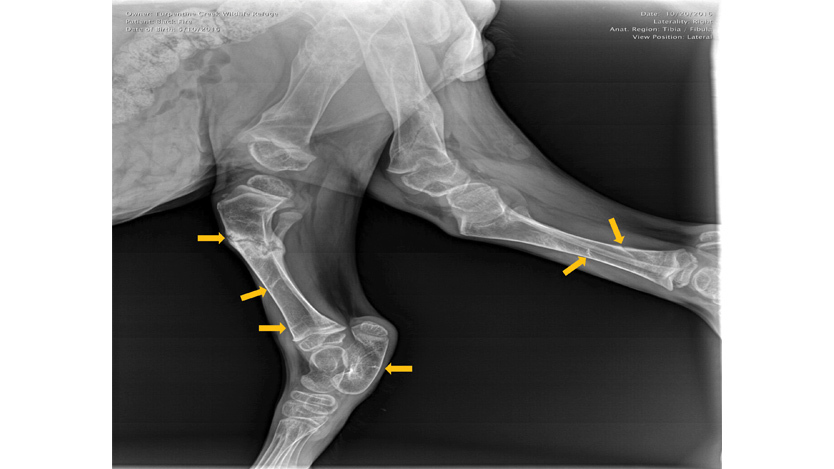Big Cats in Captivity: Rescue and Advocacy - United States
There are more tigers in captivity in the United States than there are in the wildtragic development problems cub-petting operations can create
tragic development problems cub-petting operations can create

This article is the third in a multi-part series explaining the deleterious effects of cub petting. Read precedeing blogs Tigers rescued from cub petting operation, Part 1 and Priya’s story, a tiger rescued from cub petting, Part 2.
In a recent cub-petting business rescue, we met Blackfire, Rocklyn and Peyton, three white tiger cubs taken from their mother shortly after birth and used in the cub-petting business.
While they had been there, the cubs had been bottle fed a formula that for some reason – ignorance, indifference, and/or greed (malnourished cubs stay smaller longer) – may have lacked the proper nutrition*.
Without enough calcium to grow strong, healthy bones, these baby tigers began to suffer from a condition called metabolic bone disease (MBD). Their rescuers first noticed symptoms of MBD immediately upon arrival because none of the cubs could stand properly and they cried when they tried to walk.
X-rays were taken and blood was drawn for analysis. The results showed low blood calcium levels and multiple fractures in the cubs’ pelvises and limbs. The pelvis deformities were so severe in Blackfire’s case that it was making it difficult for him to go to the bathroom, causing painful constipation.
All three were quickly placed on painkillers, stool softeners, and a special diet to correct the mineral imbalances causing the cubs to suffer. Months later, all three are able to run around their new enclosures, acting more like healthy tiger cubs.
However, all still have bone deformities that may never fully heal. And none of them are out of the woods yet: Continuing complications still put them at risk.
We don’t know yet how the story will end for Rocklyn, Peyton and Blackfire.
IFAW provides funds for medical treatments and specialty diets. But that’s not enough. Roadside zoos that remove babies from their mothers prematurely so people can pay to have a selfie with a baby tiger need to become a thing of the past. The Big Cat Public Safety Act, will make it illegal for roadside zoos to continue breeding big cats. Tell your congressional representatives to support the bill to help ensure more big cats in the US can have a happily ever after.
-Meredith Whitney, IFAW Animal Rescue Officer
* MBD can also be caused by genetic factors. Rocklyn and Peyton’s mom was rescued at the same time and gave birth shortly thereafter. Her new cubs have been carefully monitored for symptoms of MBD, and have shown none, leading to the conclusion that poor nutrition was the cause of the cubs’ MBD.
Related content
every problem has a solution, every solution needs support.
The problems we face are urgent, complicated, and resistant to change. Real solutions demand creativity, hard work, and involvement from people like you.